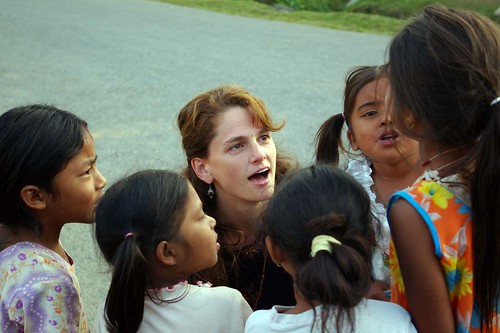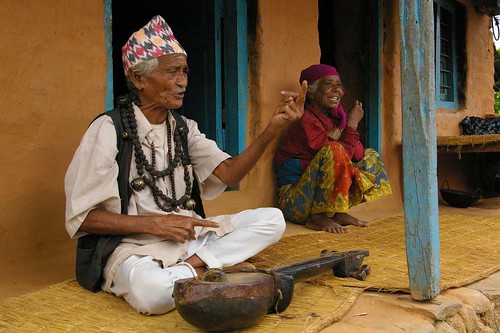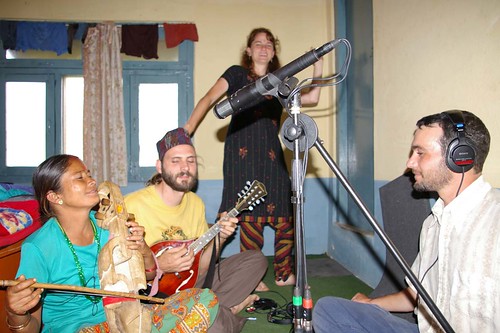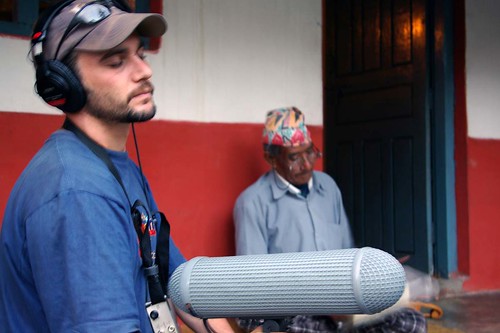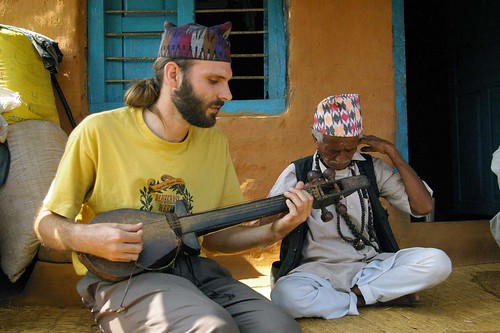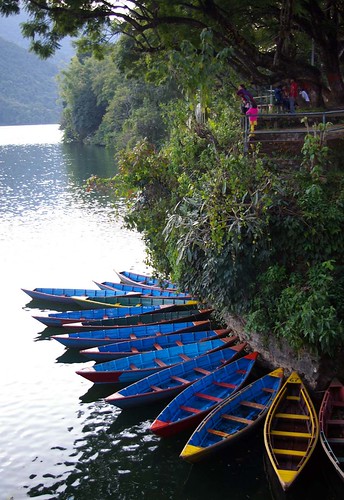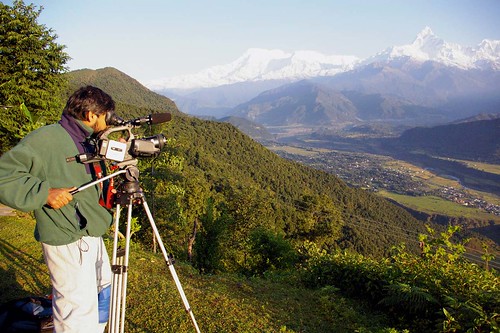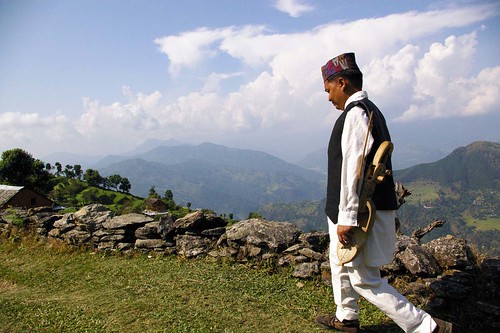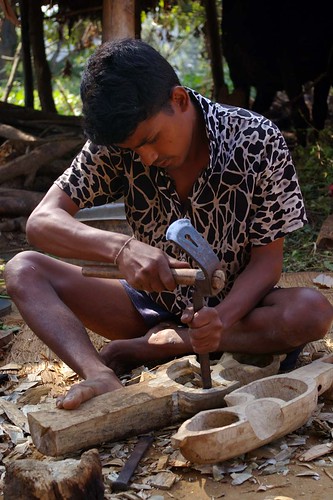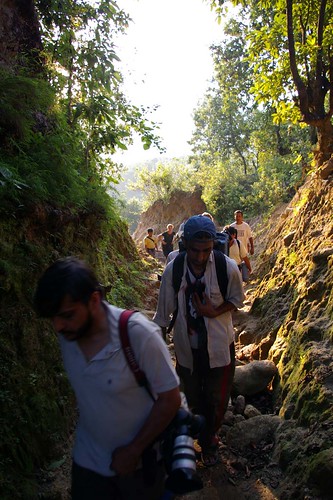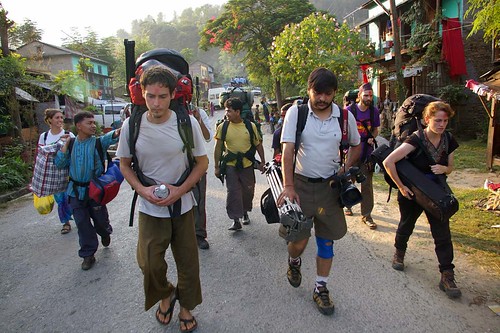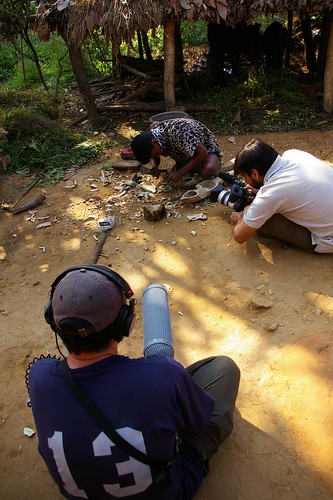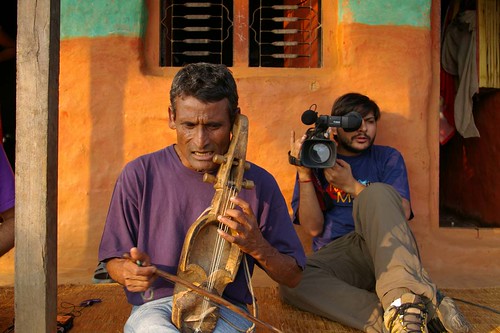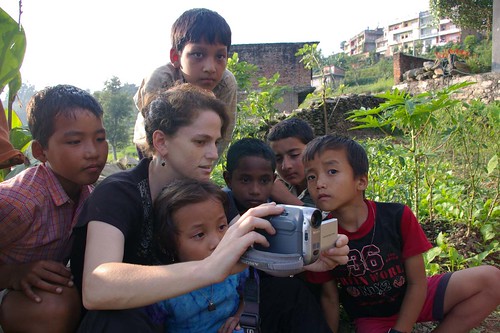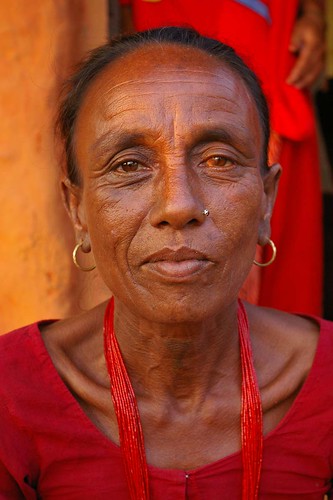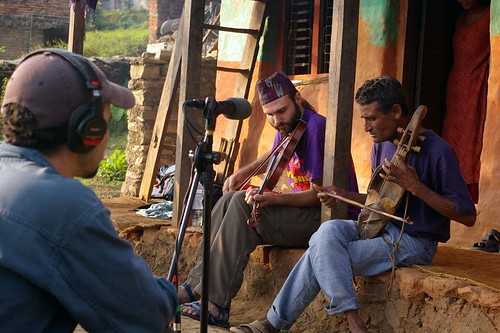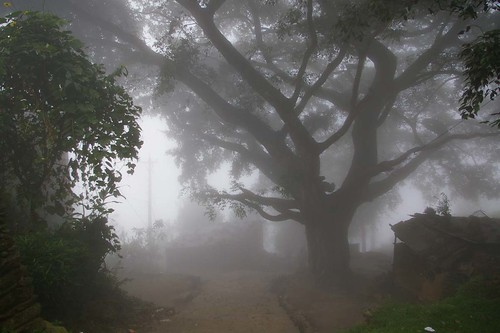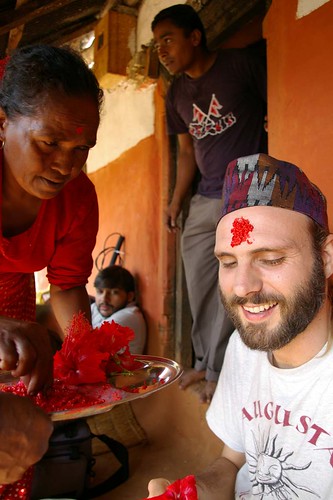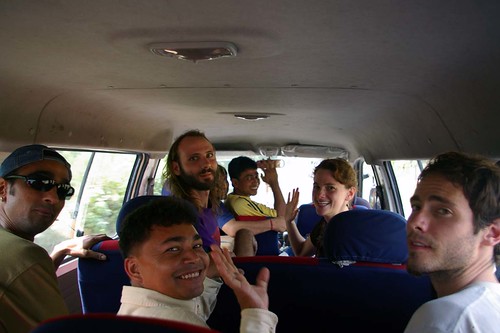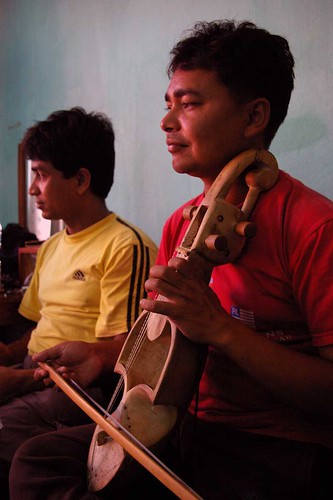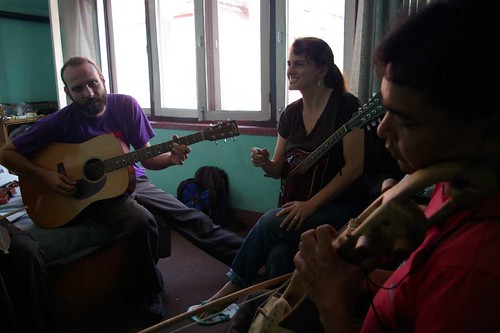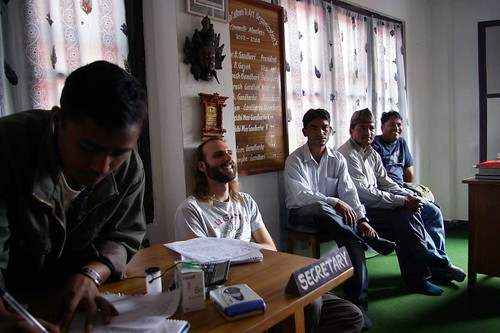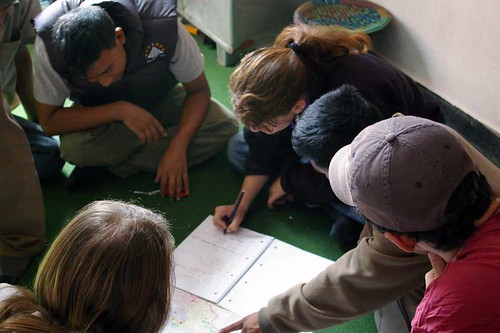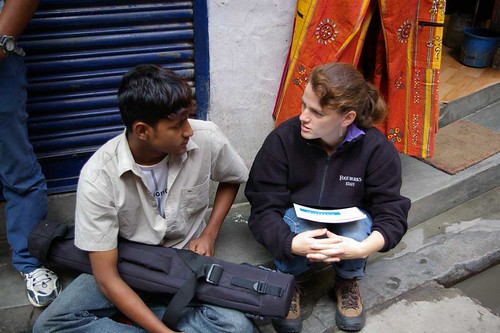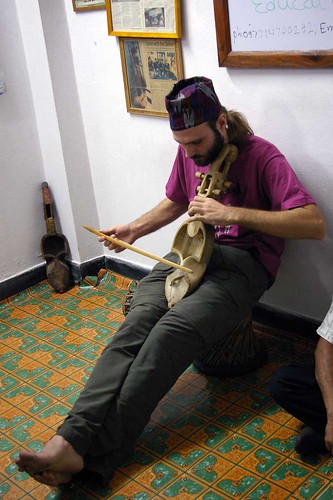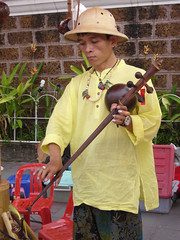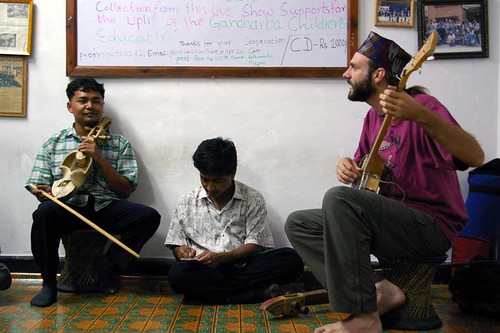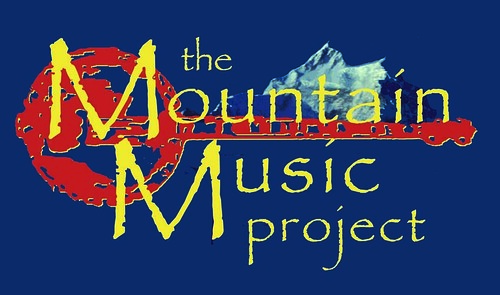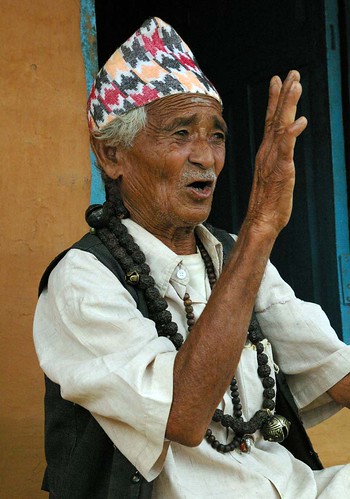 Pokhara is a lakeside town with views of Macchapuchare, the Fish's Tail, the starkest of the Annapurnas, which has never been climbed. It sticks up like the Matterhorn above the touristy pizza restaurants and Tibetan handicraft shops. Tourist mecca, dreadlocks and all the trimmings.
Pokhara is a lakeside town with views of Macchapuchare, the Fish's Tail, the starkest of the Annapurnas, which has never been climbed. It sticks up like the Matterhorn above the touristy pizza restaurants and Tibetan handicraft shops. Tourist mecca, dreadlocks and all the trimmings.We're here to find Mohan Gandharba, an 83 year old musician who is one of the few living players of the Arbaj. The Arbaj is kind of like a banjo, with a four strings, a goatskin over the body but with a hollow neck. Most young Nepalis won't learn it because it's much heavier than a sarangi and thus more difficult to travel with.
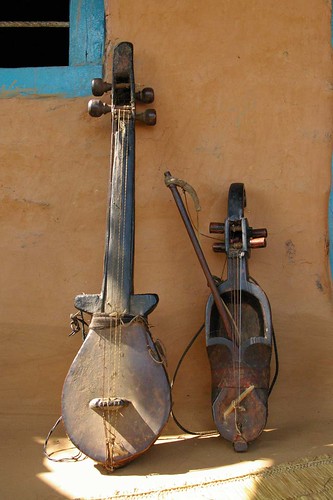 I wasn't really impressed with Mohan's playing when I was here before, but this time he's brilliant, with a great voice that Danny says reminds him of Roscoe Holcomb. In addition to being a wandering Gandharba musician, Mohan used to work as a traveling medicine man, and he takes out his paraphernalia to show us. We film and record a few short songs and hear some stories before heading off to find Tikki Maya, a woman who plays and sings with a great Nepali twang.
I wasn't really impressed with Mohan's playing when I was here before, but this time he's brilliant, with a great voice that Danny says reminds him of Roscoe Holcomb. In addition to being a wandering Gandharba musician, Mohan used to work as a traveling medicine man, and he takes out his paraphernalia to show us. We film and record a few short songs and hear some stories before heading off to find Tikki Maya, a woman who plays and sings with a great Nepali twang.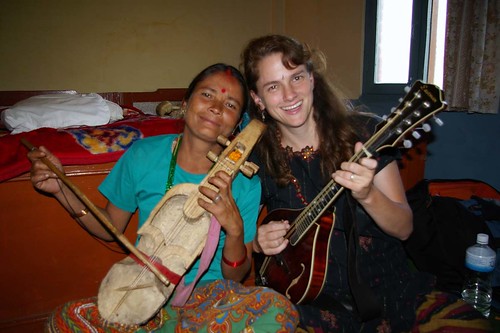 Tikki Maya takes an instant liking to Tara. She probably doesn't trust us guys too much, plus Tara speaks fluent Nepalese. She's so good I've got to share it with y'all. We haven't translated all the lyrics yet, but the name of this song translates as No Happiness in My Heart. Her voices gives me chills.
Tikki Maya takes an instant liking to Tara. She probably doesn't trust us guys too much, plus Tara speaks fluent Nepalese. She's so good I've got to share it with y'all. We haven't translated all the lyrics yet, but the name of this song translates as No Happiness in My Heart. Her voices gives me chills. We agree to pick up Tikki Maya to do some recording at our hotel the next day, where there are less chickens and children to interfere with the recordings. Then we head to Batulechour, a large Gandharba village on the outskirts of Pokhara.
We agree to pick up Tikki Maya to do some recording at our hotel the next day, where there are less chickens and children to interfere with the recordings. Then we head to Batulechour, a large Gandharba village on the outskirts of Pokhara.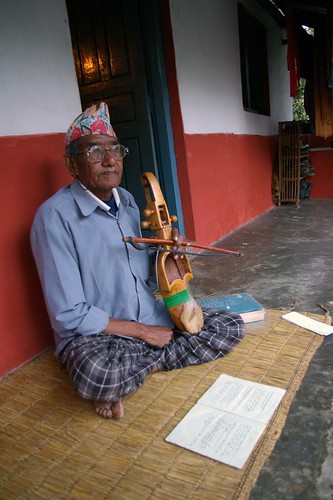 We walk down into a lush steep valley near the village and meet Khim Bahadur Gandharba, an old music teacher who's traveled quite a bit outside of Nepal. He gives us a basic lesson on sarangi and clearly has more Indian influence than the rest, using different ragas and writing his lyrics down on paper.
We walk down into a lush steep valley near the village and meet Khim Bahadur Gandharba, an old music teacher who's traveled quite a bit outside of Nepal. He gives us a basic lesson on sarangi and clearly has more Indian influence than the rest, using different ragas and writing his lyrics down on paper.It's Tihar festival today, kind of like Nepali Christmas. The lights are strung and candles lit across town, and today brothers and sisters will eat together. We're taking a day off of filming, content to eat and drink with our Nepali friends, catch up on some email, and figure out where to go next. It's looking like Palpa, back up in the mountains, and from there to Manoj's home in the flatlands of the Terai, near Chitwan National Park. There's rhinos, tigers, and more Gandharba communities. I'll post some video clips when we get back to Kathmandu around early November. Until then, Happy Tihar!
